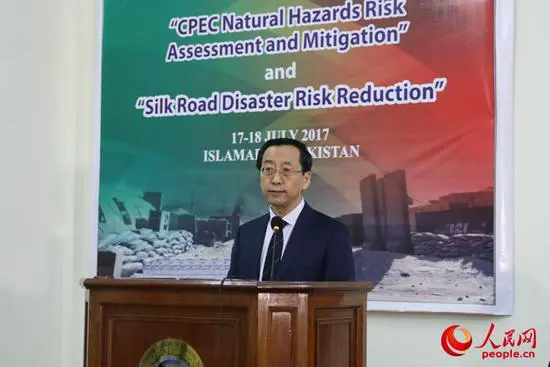Israeli Prime Minister Benjamin Netanyahu accused the Palestinian Authority of incitement as triggering the deadly attack on a Jerusalem synagogue Tuesday and urged the international community to denunciate terror and end Palestinian incitement.
Netanyahu, who gave an official statement to the press Tuesday evening following the terror attack at a Jerusalem synagogue that claimed the lives of four Israelis with UK, U.S. citizenship and injured eight, blamed what he dubbed the Palestinian Authority's " constant" incitement for the recent wave of militant acts.
"There is constant incitement against Israel in the Palestinian Authority territories, in schools, mosques, the media, against the very fact of Israel's existence. That's the root of the conflict," the prime minister said.
Netanyahu acknowledged Palestinian President Mahmoud Abbas's condemnation of the attack, saying, "it's good that Abbas condemned the massacre... but it's not enough," calling on Abbas to "stop the incitement."
Netanyahu instructed the Israeli security services to "increase the security and enforcement in Jerusalem and harshly punish those who instigate violence" following weeks of deadly militant attacks and violent clashes.
On the global front, the prime minister called upon the international community to denunciate terror and demand to stop the incitement by the Palestinian Authority against Israel, particularly focusing on statements made in light of the heightened tensions over Jerusalem's Temple Mount complex.
"I call upon the international community to express deep and uncompromising denunciation and shock over these murders of Israelis," Netanyahu said.
"Hamas, the Islamic Jihad, and the Palestinian Authority are spreading false rumors, blood libels, saying we are defiling Temple Mount, that we plan to destroy the holy sites," Netanyahu said.
Temple Mount, holy to both Jews and Muslims, has been the source of increased tensions. The Palestinians and leaders of some Arab countries, including Jordan, accused Israel of trying to break the status quo.
Israel occupied the site, home to the Muslim Al Aqsa Mosque and the place in which the Jewish Temple lay in ancient times, in the 1967 Mideast War. It is jointly run with Jordan, from which the site was conquered. While Jewish worshippers are allowed to pray at the foothill of the mount, they are not allowed to pray on top of the mount itself.
Netanyahu also talked about an incident on Sunday, in which a Palestinian bus driver was found hanged inside a bus depot in Jerusalem. Whereas the Israeli police announced, following an autopsy, the death was caused by suicide, there have been Palestinian reports that the death was a violent act perpetrated by Jewish extremists. Hamas had mentioned this incident, connecting it to Tuesday's synagogue attack.
Netanyahu concluded his statements by urging extremists not to perpetrate violent acts against Palestinians in response to the attack, trying to calm the tensions.
Tensions in Jerusalem mounted in July following the kidnap and killing of a 15-year-old Palestinian from east Jerusalem by Jewish extremists, following the kidnap and killing of three Israeli teens in the West Bank by Palestinian militants in June.
The tensions also stem from recent Israeli announcements of hundreds of new housing units in east Jerusalem neighborhoods, beyond the pre-1967 line, on lands Israel annexed in the Mideast War and where more than 300,000 Palestinians reside. Violence was also triggered by the collapse of the Israeli-Palestinian peace negotiations in April and the Israeli military campaign against Hamas in Gaza last summer. Enditem
 简体中文
简体中文

